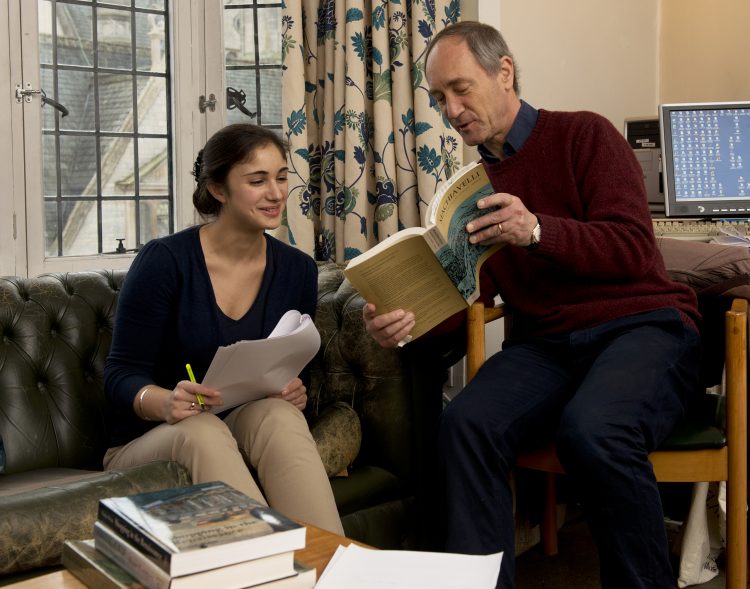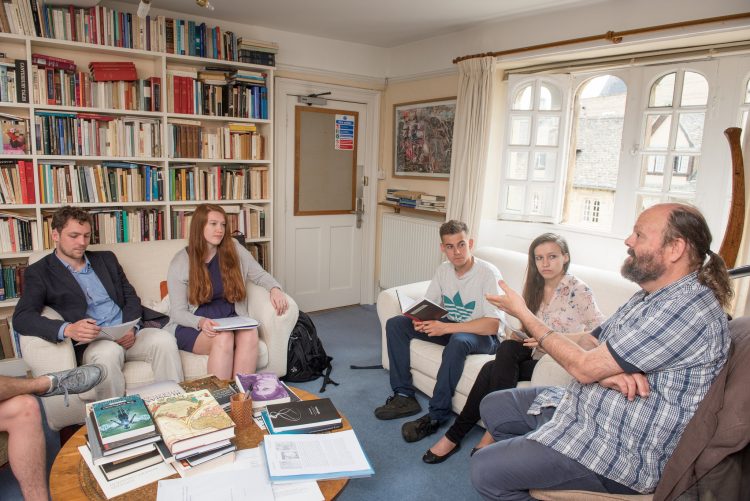History and Modern Languages
undergraduates
This joint honours degree programme offered by the Faculties of History and Medieval and Modern Languages allows students with a focused interest in the language, literature, culture, politics and past of a particular country or region to immerse themselves in it for four years. There is much scope for tailoring a specialist course by selecting complementary options from each discipline. The degree programme includes a compulsory year abroad and graduates boast an impressive range of transferable skills.
Both disciplines flourish at St Edmund Hall. Our numerous teaching staff for Modern Languages means that our students are able to read History in combination with French, German, Russian or Spanish. The College is able to offer particular expertise in Russian history and culture. History Fellow Professor David Priestland and Modern Languages Fellow Professor Andrew Kahn both work in this area, and we also have a number of Fellows from other disciplines with an interest in the region.
Find out more by visiting the course pages for History and Modern Languages at St Edmund Hall.
Candidates for the Joint School will be interviewed by tutors in both subjects. The History interview will be based on a discussion of a short passage of academic writing, which you will have the chance to read and study privately in advance. You may also be asked about your submitted written work and/or statements you have made on your UCAS form.
Candidates for courses involving Modern Languages will have at least one general interview and one or two language-specific interviews (depending on the particular course). The general interview will be based on a discussion of a short passage of literature writing in English, which you will have the chance to read and study privately in advance. You may also be asked about your submitted written work and/or statements you have made on your UCAS form in the course of this general interview. The language-specific interview will spend some time discussing a passage (often a short poem), which you will have been given to read in advance, and which will be written in the language you wish to study. As well as discussing this passage, we may pursue some of the topics raised in your UCAS form about your interests and motivation.
For more information about studying History and Modern Languages at Oxford, visit the University course page.
Related Courses


UCAS course codes
History and Beginners' Czech (VR1R)
History and Czech (VR17)
History and French (VR11)
History and German (VR12)
History and Russian (VRC7)
History and Spanish (VR14)
See syllabus and entry requirements for further information.